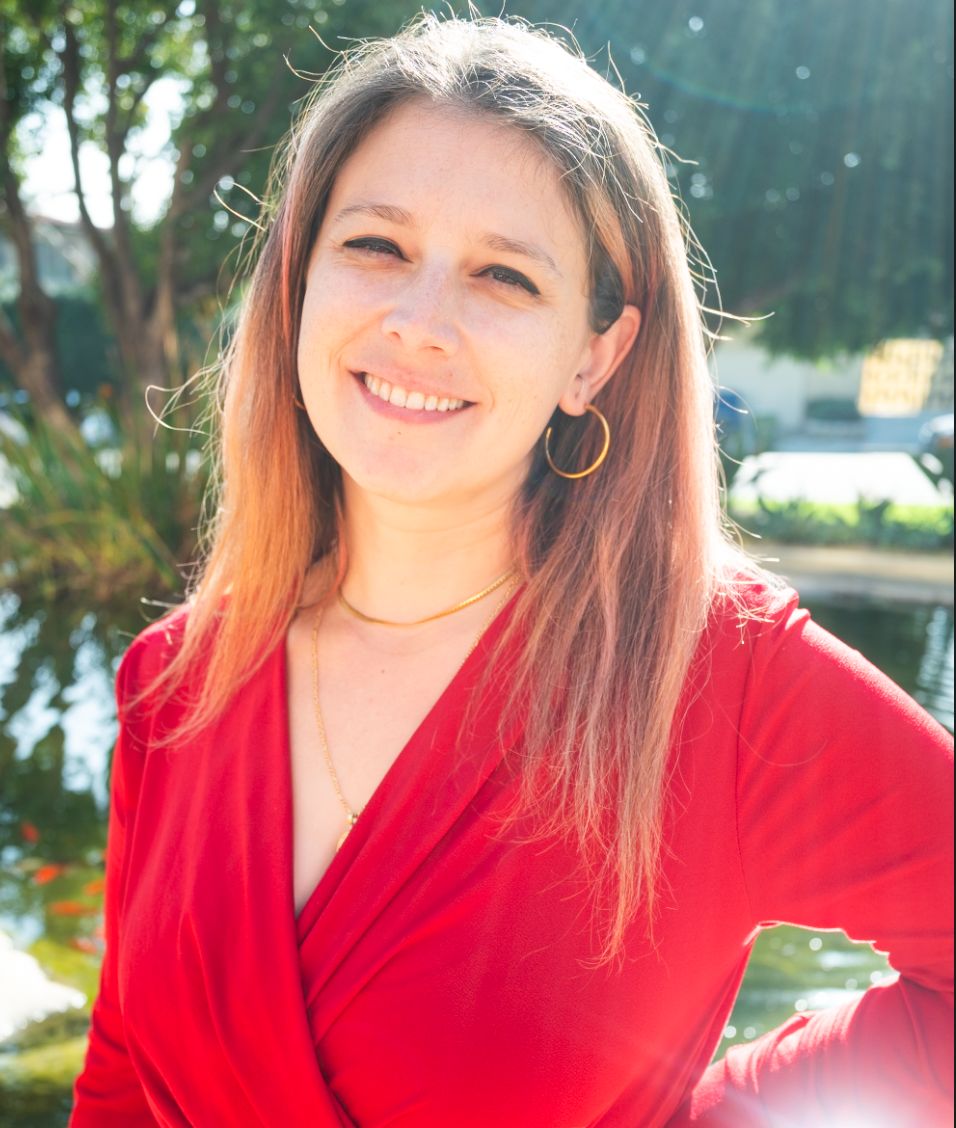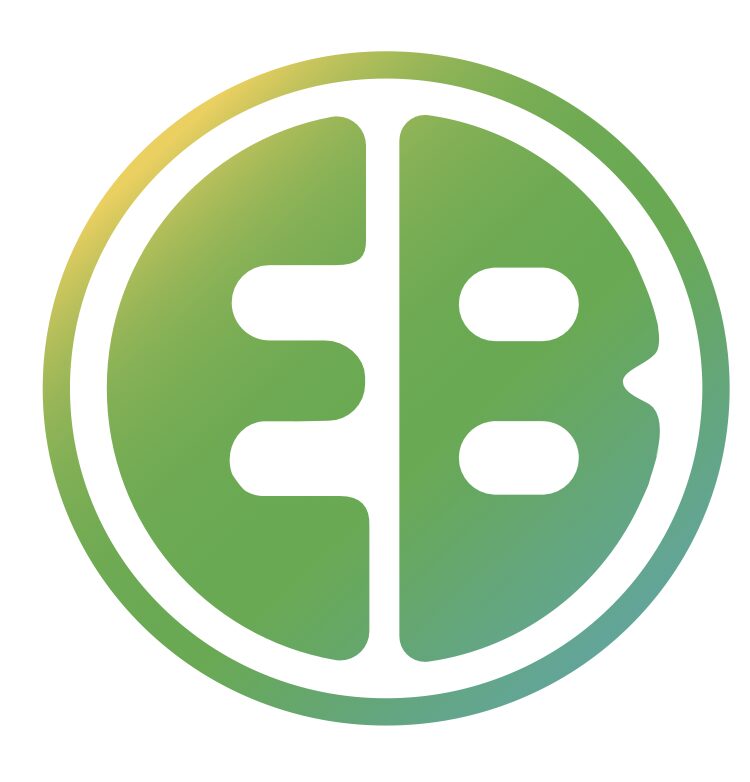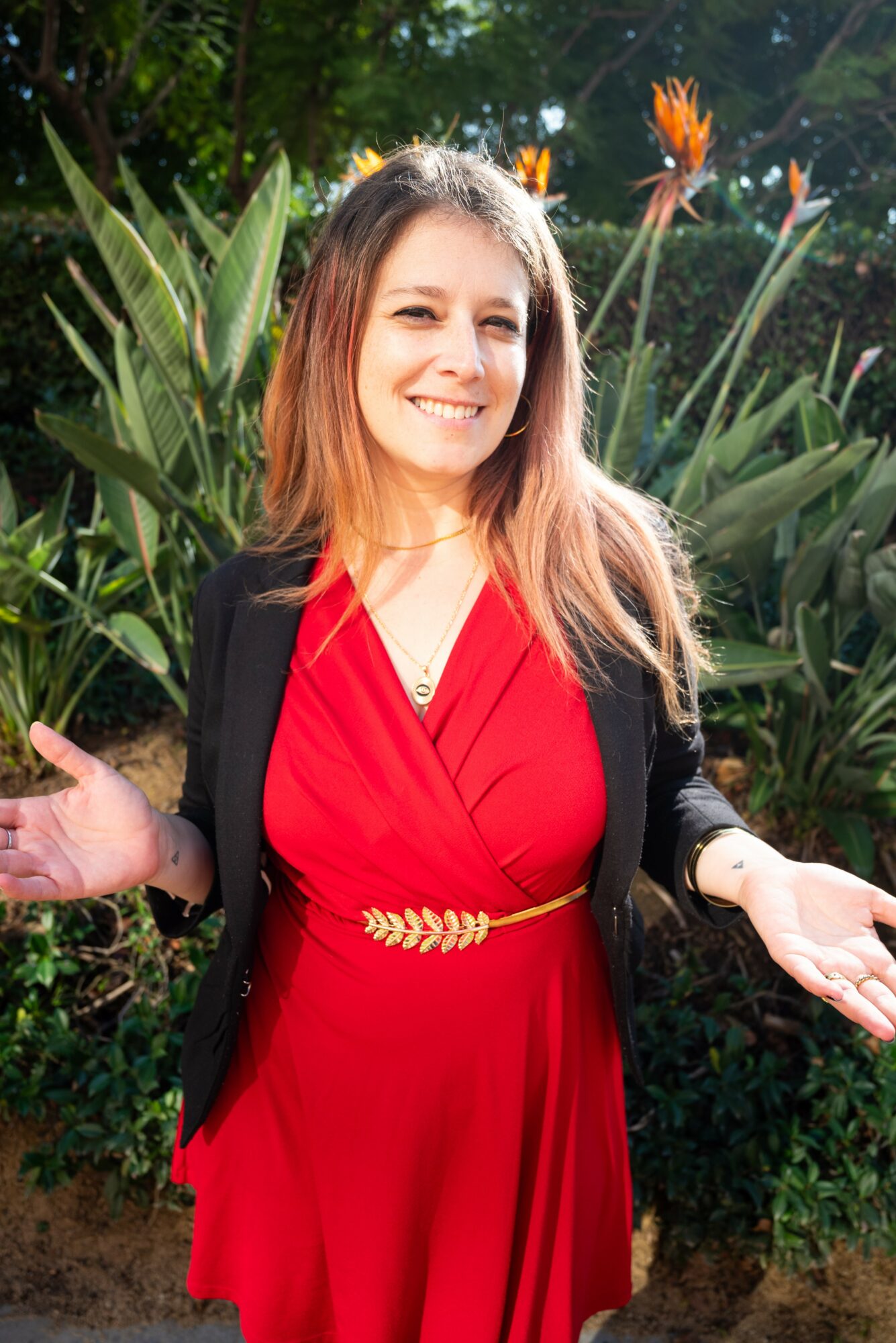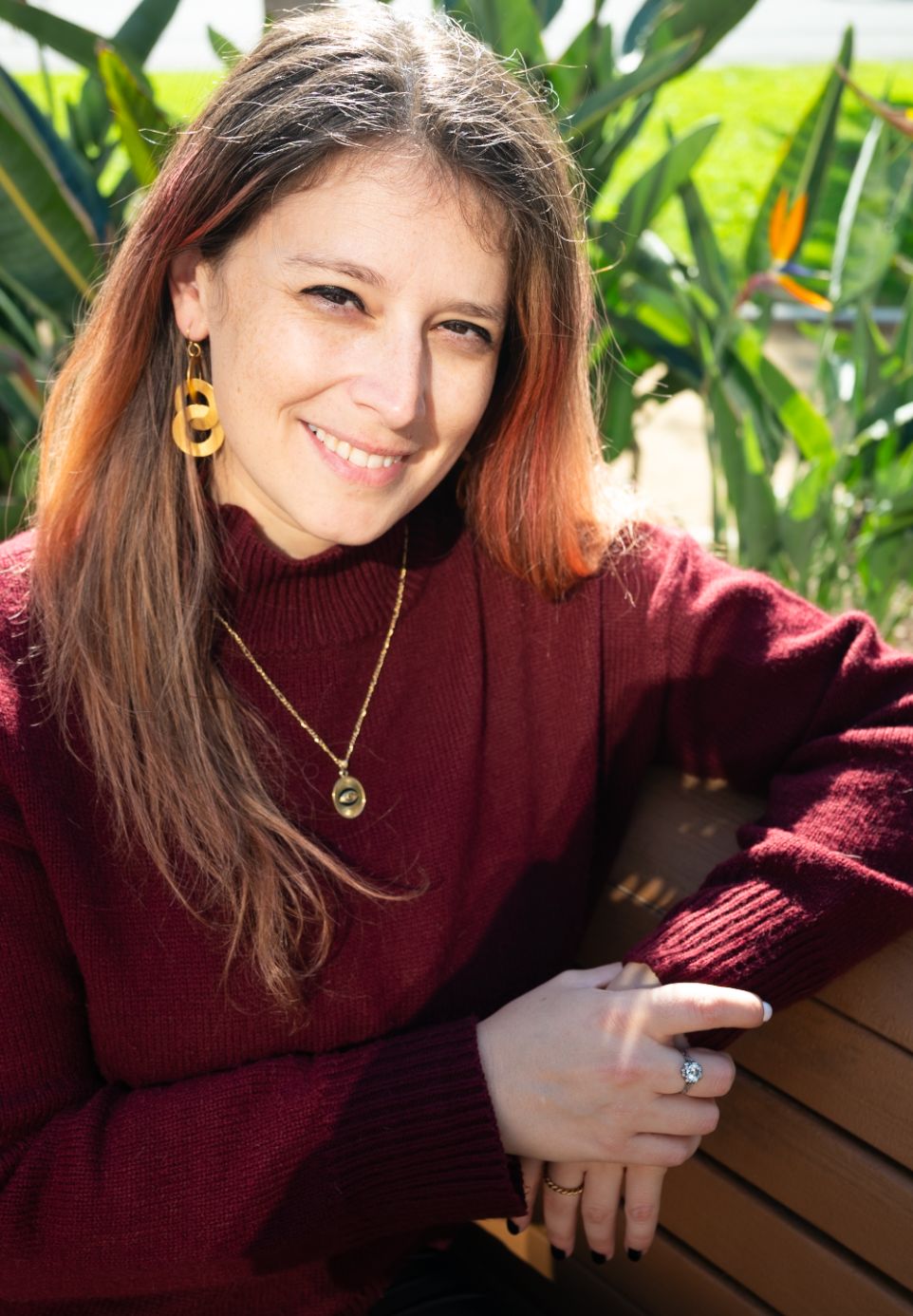

We’re looking forward to introducing you to Elinor Bawnik. Check out our conversation below.
Hi Elinor, thank you so much for taking time out of your busy day to share your story, experiences and insights with our readers. Let’s jump right in with an interesting one: What is a normal day like for you right now?
Normal for me looks different every day! I’ve got my general routine, like walking my dog, making coffee, and seeing clients, but after that, it really depends. I do my best to live out my value of connection, so I set up marketing meetings with colleagues, both new and familiar, and make time to see friends.
I like to stay socially busy with dinners, hangouts, or trying something new—maybe a pop-up bar, brunch, escape room, or a quick road trip. I also play D&D twice a week and fully embrace the nerd life.
And because I genuinely love what I do, I’m always learning through taking classes, both online and in person, to stay up to date on new methods and interventions.
Can you briefly introduce yourself and share what makes you or your brand unique?
I’m Elinor, a Licensed Marriage and Family Therapist and the founder of a private practice where I work with individuals and couples who are navigating big transitions, attachment wounds, and relationship challenges. I specialize with OCD and anxiety disorders, personality disorders, and couples therapy (also alternative relationships) within a sex positive and kink-friendly mindset. I also supervise associate therapists and love my consult group. I love helping new clinicians grow their confidence and clinical voice, and case conceptualization with my colleagues.
What makes my practice unique is that I blend evidence-based approaches like DBT and ACT with a very human, real-world focus. I’m interested in helping people understand not just why they struggle, but how to build lives that actually feel aligned and meaningful. My style is very straightforward, and I enjoy a more interactive conversational method of therapy.
Outside of sessions, I’m usually connecting with other therapists and creatives, developing workshops, or exploring ways to make therapy feel more accessible and engaging. And when I’m off the clock, you’ll probably find me with my dog, rolling dice at a D&D table, or trying a new brunch spot.
Appreciate your sharing that. Let’s talk about your life, growing up and some of topics and learnings around that. What’s a moment that really shaped how you see the world?
I don’t think there was one particular moment, so it’s more a collection of many. Growing up, I traveled a lot with my family, and I was always curious about the places we visited. I’d try to pick up bits of the language, taste new foods, and dive into the local music. One of our traditions was visiting supermarkets or food markets wherever we went! It was such a fun way to see culture through food and enjoy the tastes and interact with locals.
Experiencing so many different places, people, and ways of living really opened my eyes to how culture shapes us. It influences the way we see the world and how we understand ourselves.
What did suffering teach you that success never could?
Suffering (or I should say struggle) has taught me far more than success ever could. In ACT, we talk a lot about how pain and struggle are part of being human. They are not obstacles to avoid, but signals that we care deeply about something. Struggle invites us to clarify what matters and to move toward it, even when it’s uncomfortable.
For me, challenging periods have deepened my sense of purpose and connection. They’ve shown me that meaning doesn’t come from avoiding pain, but from what we build through it. It builds resilience, empathy, or a life that feels aligned with our values. Success feels great, but it rarely stretches us the way struggle does. Struggle is often where growth, purpose, and authenticity actually begin.
Sure, so let’s go deeper into your values and how you think. What’s a belief or project you’re committed to, no matter how long it takes?
I’m really committed to helping people check their cognitive distortions (or false thoughts) and speak more openly with each other, especially in today’s climate, where opinions can feel so divided. As a therapist, I see every day how our thoughts can shape the way we connect, or disconnect, from others. Beliefs that keep us stuck in “black and white” thinking, deny us the option of the grey where we can coexist and collaborate.
I believe that open, curious dialogue is one of the most powerful tools we have. It’s not about agreeing on everything, but about understanding the “why” behind someone’s perspective. If we can slow down, challenge our assumptions, and stay grounded in empathy, I think we have a real shot at bridging the gaps that keep us apart. That’s work I’m willing to stay committed to, no matter how long it takes.
Thank you so much for all of your openness so far. Maybe we can close with a future oriented question. What is the story you hope people tell about you when you’re gone?
I hope people say that I made them feel seen, accepted, and a little more understood. That I helped them find meaning in their struggles and gave them tools to live in alignment with their values.
I’d love to be remembered as someone who was genuine and curious, who valued connection, growth, and a good laugh along the way. Ultimately, I hope the story people tell is that I showed up fully, imperfectly, and with intention.
Contact Info:
- Website: https://www.eb-flowtherapy.com
- Instagram: https://www.instagram.com/elinorlmft/
- Linkedin: https://www.linkedin.com/in/elinor-b-12814b75/
- Facebook: https://www.facebook.com/profile.php?id=100073185439886

















